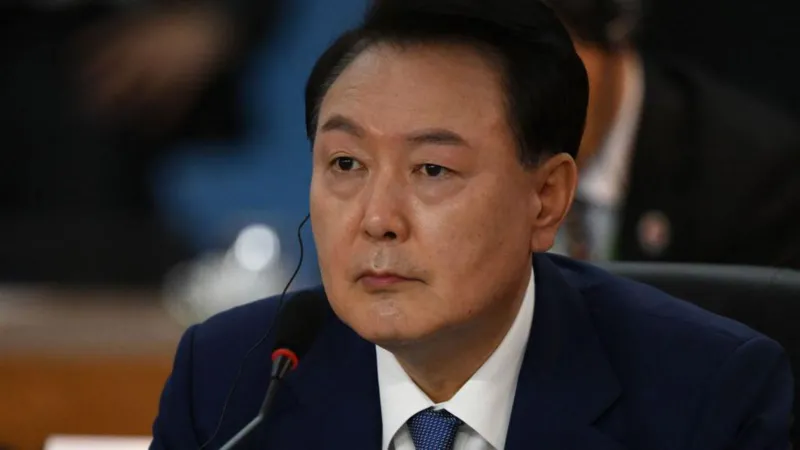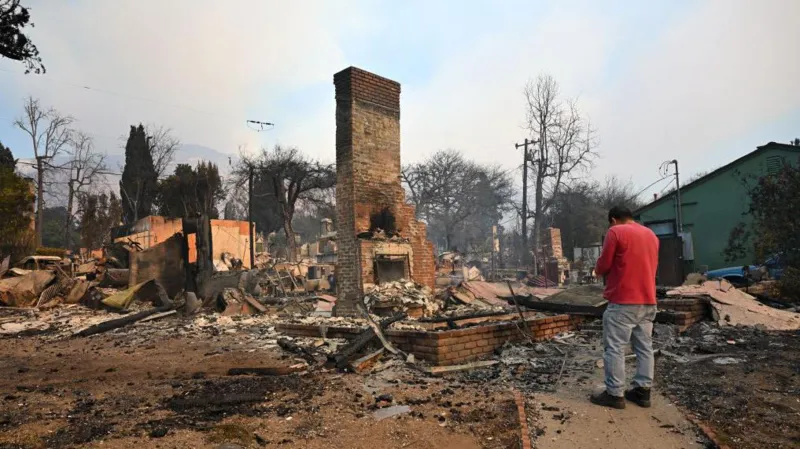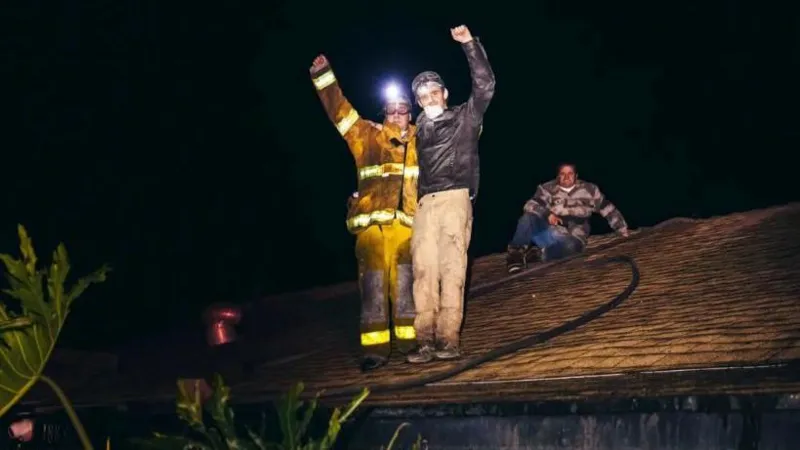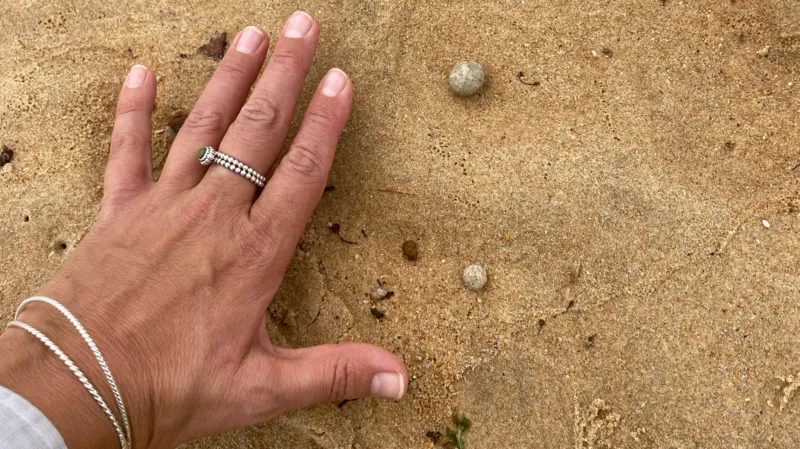International
S Korea begins impeachment trial of suspended president

South Korea’s Constitutional Court has held its first hearing to decide if suspended President Yoon Suk Yeol should be removed from office after his shock martial law attempt last month.
The hearing ended within four minutes because of Yoon’s absence – his lawyers had earlier said he would not attend for his own safety, as there is a warrant out for his arrest on separate charges of insurrection.
In December, Yoon was suspended after members of his own party voted with the opposition to impeach him.
However he will only be formally removed from office if at least six of the eight-member Constitutional Court bench votes to uphold the impeachment.
According to South Korean law, the court must set a new date for a hearing before they can proceed without his participation.
The next hearing is scheduled for Thursday.
Yoon’s lawyers have indicated that he will show up for a hearing at an “appropriate time”, but they have challenged the court’s “unilateral decision” on trial dates.
The court on Tuesday rejected the lawyers’ request for one of the eight justices to be recused from the proceedings.
Yoon has not commented publicly since parliament voted to impeach him on 14 December and has been speaking primarily through his lawyers.
Investigators are also separately preparing for another attempt to arrest Yoon for alleged insurrection, after an earlier attempt on 3 January ended following an hours-long standoff with his security team.
Yoon is South Korea’s first sitting president to face arrest. The second attempt to take him into custody could happen as early as this week, according to local media.
The suspended leader has not commented publicly since parliament voted to impeach him on 14 December and has been speaking primarily through his lawyers.
Yoon’s short-lived martial law declaration on 3 December has thrown South Korea into political turmoil. He had tried to justify the attempt by saying he was protecting the country from “anti-state” forces, but it soon became clear it was spurred by his own political troubles.
What followed was an unprecedented few weeks which saw the opposition-dominated parliament vote to impeach Yoon and then Prime Minister Han Duck-soo, who succeeded him briefly as acting president.
The crisis has hit the country’s economy, with the won weakening and global credit rating agencies warning of weakening consumer and business sentiment.
Former presidents Roh Moo-hyun and Park Geun-hye did not attend their impeachment trials in 2004 and 2017 respectively.
In Park’s case, the first hearing ended after nine minutes in her absence.
Roh was reinstated after a two-month review, while Park’s impeachment was upheld.
International
LA fire victims fear new housing crisis

Michael Storc and his family had just survived a devastating wildfire.
Now they have to face a daunting new challenge that he had hoped to never experience again – the Los Angeles housing market.
After losing the Altadena home that he owned in the Eaton fire, he was scouring for a new place to rent, and having little luck.
“What’s available is not nice at all and the rents have gone up a lot,” Mr Storc told the BBC. “I told my teenage daughter we had to accept we would live somewhere not very nice.”
The Los Angeles area already has one of the most expensive real estate markets in the country. And with thousands now displaced by the Palisades and Eaton fires, Angelenos are anxious that the sudden surge in demand could make rents and home prices soar even higher.
California has an anti-price gouging law that prevents landlords from raising rents more than 10% after the governor declares an emergency. It applies to both existing and tenants and new leases.
Follow live updates
LA brain surgeon saves street from fires
Many Los Angeles County buildings are also covered by rent stabilisation laws, which prevent landlords from raising the rent for existing tenants above a certain percentage even in normal circumstances.
“It is illegal. You cannot do it,” California attorney general Rob Bonta said at a Saturday press conference. “It is a crime punishable by up to a year in jail and fines.”
Not everyone was certain that the law would be completely enforceable, however.
“We’re aware of that but my question is, how is that being regulated? And who’s monitoring that?” said Jessica Heredia, a realtor based in the high-end Brentwood neighbourhood for the last 20 years.
International
LA brain surgeon saves street from ‘apocalyptic’ wildfires

A Los Angeles brain surgeon who fought for almost a week to save the houses on his street from wildfires told the BBC he spent 15 years preparing for such an event.
Malibu resident Dr Chester Griffiths, 62, ignored evacuation orders to keep flames from the Palisades fire at bay with the help of his son and neighbour, until emergency services were able to reach them.
“We had always known that a fire would come someday – but we didn’t know when,” Dr Griffiths told the BBC’s Today Programme.
“We never fathomed it would be this catastrophic and apocalyptic.”
International
Marble-sized balls force Sydney beaches to close

Months after mysterious black balls forced the closure of some of Sydney’s most famous beaches, small marble-like debris has begun washing up on the city’s shores again.
The balls – this time grey or white in colour – have prompted councils to shut nine beaches, including popular Manly and Dee Why, while authorities investigate.
Eight beaches including Bondi were closed for several days in October and a massive clean-up ordered after thousands of black deposits started appearing on the coast.
Testing by authorities determined those balls were most likely the result of a sewage spill.
Northern Beaches mayor Sue Heins said the latest balls “could be anything”, according to the Guardian Australia.
“We don’t know at the moment what it is and that makes it even more concerning,” she said.
“There’s something that’s obviously leaking or dropping… floating out there and being tossed around.”
In a post on Facebook on Tuesday, the Northern Beaches Council said they were alerted to the fresh debris by the New South Wales Environmental Protection Agency (EPA).
The agency and the council planned to collect the discoveries for testing and inspect other beaches in the area too.
Anyone who spotted the balls was urged to contact authorities, the council added.
Though widely reported to be “tar balls”, the debris in October was later found to contain everything from cooking oil and soap scum molecules, to blood pressure medication, pesticides, hair, methamphetamine and veterinary drugs.
Scientists said they resembled fat, oil, and grease blobs – often called fatbergs – which are commonly formed in sewerage systems.
-

 Entertainment7 months ago
Entertainment7 months agoEarthquake scientists are learning warning signs of ‘The Big One.’ When should they tell the public?
-

 International7 months ago
International7 months agoTarar accuses Imran Khan of conspiring with Faiz Hameed to destabilise Pakistan
-

 International5 months ago
International5 months agoPTI Announces Not to Boycott New Committees
-

 Business5 months ago
Business5 months agoMajor Corruption Scandal Uncovered at WASA Multan: Rs1.5 Billion Embezzlement Exposed
-

 Business6 months ago
Business6 months agoThe Impact of QR Codes on Traditional Advertising
-

 Fashion2 months ago
Fashion2 months agoA fashion expert’s insider guide to shopping in New York City
-

 Tech2 months ago
Tech2 months agoNew policy outlines next generation of technology
-

 Business7 months ago
Business7 months agoThe Benefits and Problems of International Trade in the Context of Global Crisis






